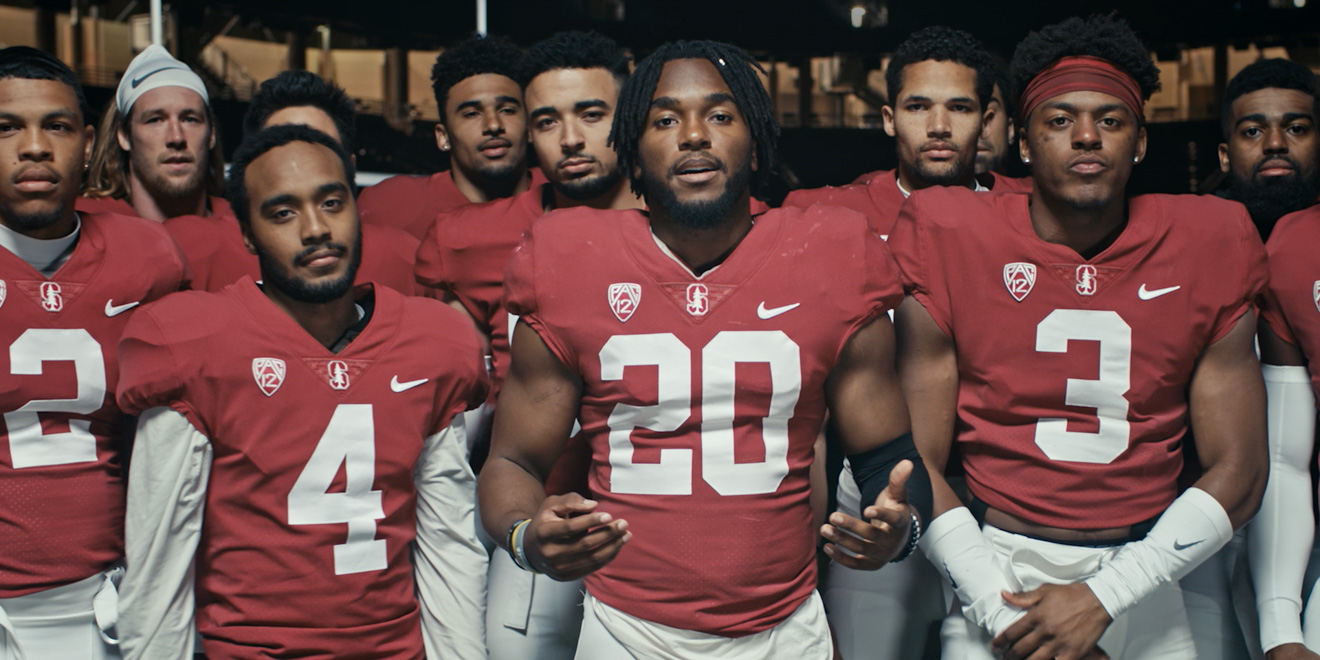On Oct. 18, the concussion awareness initiative known as CrashCourse, developed by Stanford researchers and student-athletes, announced that it has partnered with Pop Warner, the country’s largest youth football organization for children aged five to 16 years old. CrashCourse aims to promote dialogue about head injuries and to encourage early reporting of concussion symptoms among youth football players nationwide. Pop Warner will promote CrashCourse to its 225,000 football players and 100,000 cheer and dance participants across the U.S.
CrashCourse is the first research-based, virtual reality concussion education program in the world. It was developed by TeachAids, a nonprofit collaboration with Stanford University specializing in health education innovation.
According to the CrashCourse research team, one in five high school athletes will experience a concussion. Given the prevalence and dangers surrounding head injury, researchers at TeachAids realized there was a lack of engaging and effective concussion education among young athletes.
“Although there are ample materials available for parents, coaches and medical professionals, there is a dearth of customized, research-based education for young people,” said Dr. Julian Bailes, founder of The Brain Injury Research Institute. “If we are going to change the culture of sports we need to educate our young athletes.”
TeachAids’ solution was to develop CrashCourse, an interactive learning experience that intends to educate young athletes about concussions. The program uses virtual reality and high definition videos to simulate a high school football game for each participant, virtually placing them on the field.
Stanford football captains Brandon Simmons ’19, Alameen Murphy ’19 and Bryce Love ’19 were heavily involved in the program’s development. “The team had us involved at each stage, from writing up the script to working with the kids to figuring out how to frame it in our voices,” wrote Simmons in a statement to The Daily.
They said they were motivated by their desire to help educate a younger version of themselves through concussion awareness.
“We didn’t just start out as Stanford [football] captains,” wrote Love, along with Simmons and Murphy, in a media letter. “Each of us first started on a Pop Warner team across the country.”
“[CrashCourse] is what we wish we had when we were younger,” added Love in an email to The Daily. “There was nothing like it growing up for us.”
The Stanford football captains joined other Stanford students and athletes in curriculum design courses with Dr. Piya Sorcar, founder and CEO of TeachAids, in January 2017. In class, they helped develop the CrashCourse curriculum, which features a virtual reality symptom simulator to help players recognize the signs of head injury, a fly-through of a 3D representation of an actual brain to show students its complexity and vulnerability and a series of interactive videos featuring college-level athletes.
To more effectively engage their young audience, notable athletes like Simmons, Murphy and Love contributed voiceovers to the interactive videos to guide kids through the educational content.
“In order to educate effectively about concussions, we needed a curriculum delivered by voices that youth admire and trust,” Sorcar said. “Research revealed that students wanted to hear from near-peers, someone relatable that had to overcome similar challenges, not from doctors, teachers or coaches.”
He added that, while he and his fellow captains wish they could speak with every young athlete face-to-face, virtual reality is the next best option.
“We felt a great sense of responsibility to lend our voices for this,” Love said.
In developing the program, Stanford athletes received feedback from local youth athletes at every stage. Murphy noted that the youth athletes asked for virtual reality lessons because they find the experience more entertaining than watching traditional videos or reading PDFs.
“When we were working with the kids, they told us how meaningful it was to have college athletes working with them,” Murphy said. “It was the same for us when we were growing up, and we met older football players. We understand where they are coming from and have been in their shoes.”
Dr. Gerald Grant, Division Chief of Pediatric Neurosurgery at Stanford Children’s Health, agrees that CrashCourse is uniquely able to connect with young athletes.
“CrashCourse speaks to young people in their own language,” Grant said. “This resource will fill a major gap in education and we hope it has a huge impact around the world.”
The Stanford football captains said they are honored and enthusiastic about the new partnership between Pop Warner and CrashCourse.
“We really believe in this program,” Murphy said. “My teammates and I poured countless hours to build CrashCourse in order to create a powerful education platform that would resonate with today’s youth. We grew up playing Pop Warner football. It’s a dream come true to see that the next generation of players will now be able to know and understand concussions the way we wish we did at their age.”
Contact Alex Tsai at aotsai ‘at’ stanford.edu.
